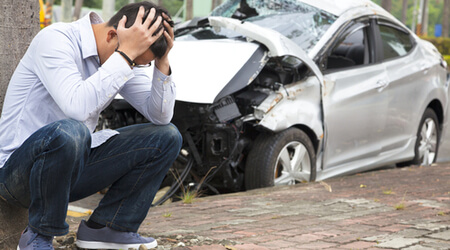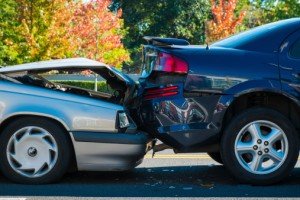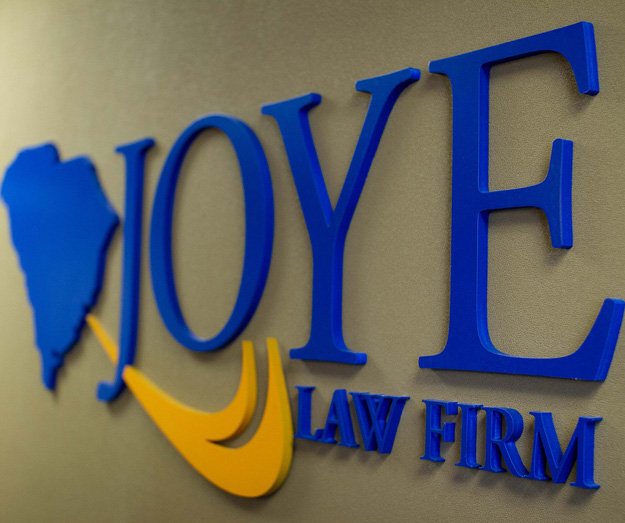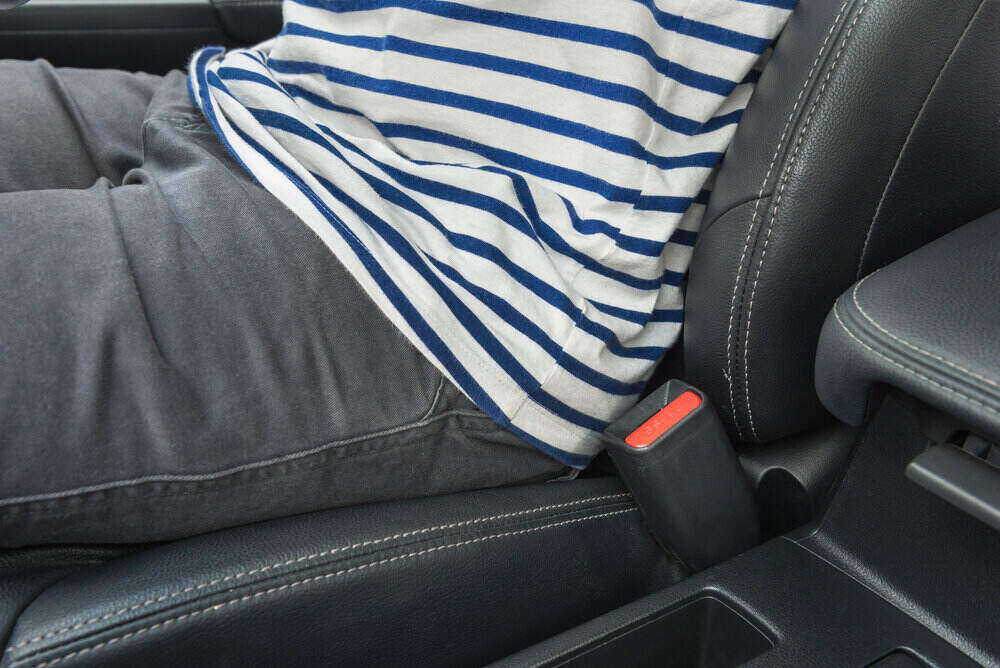
Statistics show that wearing a seat belt is the best way to protect yourself from injuries in a crash. That’s why South Carolina requires drivers and passengers to wear seat belts and younger children to ride in car seats. Since wearing seat belts became mandatory, the seat belt use rate has climbed to about 90 percent nationwide, and countless lives have been saved, according to federal statistics.
Still, despite the risk, some drivers and passengers opt out of wearing seat belts. Since this choice can leave you more vulnerable to serious injuries in the event of a car crash, you may be wondering whether it could be used against you if you need to file an injury claim. The good news is South Carolina law says that failing to use a seat belt cannot constitute evidence in a civil action, such as a personal injury lawsuit. So, while you should always wear a seatbelt, the law can’t prevent you from filing a claim just because you weren’t wearing one.
If an insurance company denies your car accident claim or offers a low settlement due to not wearing a seatbelt in a South Carolina wreck, you need to speak to an experienced car accident attorney right away. At Joye Law Firm, we can stand up to insurers who try to shift the blame. We can help you receive just compensation after a car accident caused by another motorist.
South Carolina’s Seat Belt Law
South Carolina’s seat belt law says that every driver and passenger in a motor vehicle must wear a fastened safety belt that meets federal requirements when moving on public streets or highways.
The driver is responsible for requiring every passenger 17 years old or younger to wear a safety belt or to be secured in a child restraint system. If a passenger in this age group has a driver’s license or beginner’s permit, that passenger may be ticketed separately for not wearing a seatbelt.
In 2005, South Carolina changed its seat belt law to make it easier for police to ticket people for failure to wear seat belts. Under the old law, an officer could only cite a motorist for a seat belt violation if police stopped the motorist for another violation.
Under the revised law, law enforcement officers can stop drivers if they see a driver or passenger not wearing a seat belt or secured in a child restraint system. You are subject to a fine if you violate the SC seat belt law. A seat belt violation does not result in points against an individual’s driver’s license and is not reported to insurance companies.
South Carolina’s seat belt law does not apply to:
- A driver or passenger who has written verification from a physician that he is unable to wear a safety belt for physical or medical reasons
- Medical or rescue personnel attending to injured or sick individuals in an emergency vehicle
- School, church, or daycare buses
- Public vehicles, except taxis
- Passengers of cars in parades
- United States mail carriers
- A passenger for whom no seat belt is available because other passengers are using all belts
- A driver or passenger in a vehicle not originally equipped with safety belts
Can I File a Lawsuit If I Wasn’t Wearing a Seat Belt?
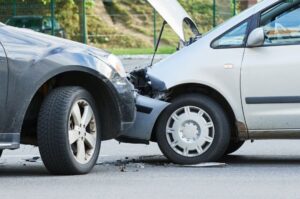
South Carolina’s seat belt law says, “A violation of this article is not negligence per se or contributory negligence, and is not admissible as evidence in a civil action.”
This means that your failure to wear a seat belt does not keep you from filing a lawsuit against another party responsible for a car accident.
While the at-fault driver’s insurance company will present evidence in their client’s favor, under the law, they could not include the fact that you were not wearing a seat belt.
Can I Recover Compensation After a Car Crash Without a Seat Belt?
South Carolina’s seat belt law refers to the doctrine of negligence, which prevents an injured party from collecting any compensation after a car accident if he or she was primarily to blame.
Failure to wear a seat belt is not available as evidence when determining comparative negligence, a rule that allows the court to distribute blame and damages based on each individual’s share of fault.
Under comparative negligence rules, each party in a lawsuit is held liable for their responsibility for the accident.
For example, imagine you have a claim for $10,000 in damages from a collision with another vehicle. If you had zero responsibility for the accident, you would recover the full $10,000.
However, if a jury decided you were partly at fault and assigned you 20 percent of the blame for the accident because you were speeding, your compensation would decrease by that percentage.
If a South Carolina jury determined that you were 51 percent or more at fault for an accident, you would not be eligible to recover compensation.
If you do not wear a seat belt, the injuries you suffer in a crash will likely be worse than they would have been if you were protected by lap and shoulder restraints. This may prompt an insurance adjuster to balk at paying your injury claim. They can’t, however, use that against you in court.
A knowledgeable attorney can stand up for your rights and prevent an insurance adjuster from trying to shift the blame to you.
Can a Lawyer Help Me if I Didn’t Wear a Seatbelt During an Accident?
Yes, an experienced car accident lawyer can help you if you didn’t wear a seatbelt during an accident. Here’s how:
Protecting your legal rights
In South Carolina, the fact that you didn’t wear a seatbelt cannot constitute evidence against you in a civil lawsuit. Our knowledgeable attorneys will ensure that this law is upheld in your case.
Countering insurance company tactics
Insurance adjusters may try to reduce or deny your claim based on your lack of seatbelt use. A skilled lawyer from Joye Law Firm can challenge these tactics and fight for fair compensation. Your attorney will focus on the other driver’s negligence that caused the accident rather than your seatbelt use.
Maximizing your compensation
Even if your injuries were more severe due to not wearing a seatbelt, you may still be entitled to compensation. Our lawyers can help ensure you receive the maximum amount possible.
Navigating comparative negligence
If other factors affect your claim, our attorneys can help navigate South Carolina’s comparative negligence rules to maximize your recovery.
Providing legal representation
If the insurance company refuses to provide a just settlement, our attorneys are prepared to go to trial to fight for you. Our lawyers can effectively represent you and ensure that inadmissible evidence about seatbelt use is not presented to the jury.
What to Do If an Insurance Company Tries to Deny Your Claim Due to Lack of Seatbelt Use
If an insurance company attempts to deny or reduce your claim because you weren’t wearing a seatbelt during the accident, take the following steps:
- Don’t accept their decision: South Carolina law prohibits using seatbelt non-use as evidence in civil actions. The insurance company’s stance may lack a legal foundation.
- Get it in writing: Ask the insurance company to provide their reasoning in writing. This documentation is valuable when challenging their decision.
- Don’t provide recorded statements: Avoid giving recorded statements about the accident or your seatbelt use without consulting an attorney first.
- Gather evidence: Collect all relevant information about the accident, including police reports, witness statements, and medical records.
- Consult an experienced car accident attorney: A knowledgeable lawyer helps you understand your rights, communicates with the insurance company on your behalf, and fights for fair compensation.
- Stay persistent: Don’t give up if your initial claim is denied. Many valid claims are initially rejected but are later approved after proper legal intervention.
Insurance companies use every imaginable tactic to minimize payouts. Being informed and seeking professional legal help protects your rights and increases your chances of receiving fair compensation, regardless of whether you were wearing a seatbelt at the time of the accident.
Contact a South Carolina Car Accident Attorney Today
If an auto accident has upended your life, our South Carolina car accident lawyers can fight for your rights and prevent insurance companies from taking advantage of you.
At Joye Law Firm, we have the experience and proven track record to take on any insurance company. Our commitment to securing justice for our clients is reflected in the results we’ve achieved and the glowing testimonials from those we’ve had the privilege to represent. Whether it’s standing up to powerful corporations or navigating complex legal battles, our team is dedicated to protecting your rights and ensuring you receive the compensation you deserve.
Call Joye Law Firm at (888) 324-3100 or use this online contact form today for a free review of your case. We handle car accident cases from Columbia, Myrtle Beach, North Charleston, Clinton, Summerville, and across South Carolina.




